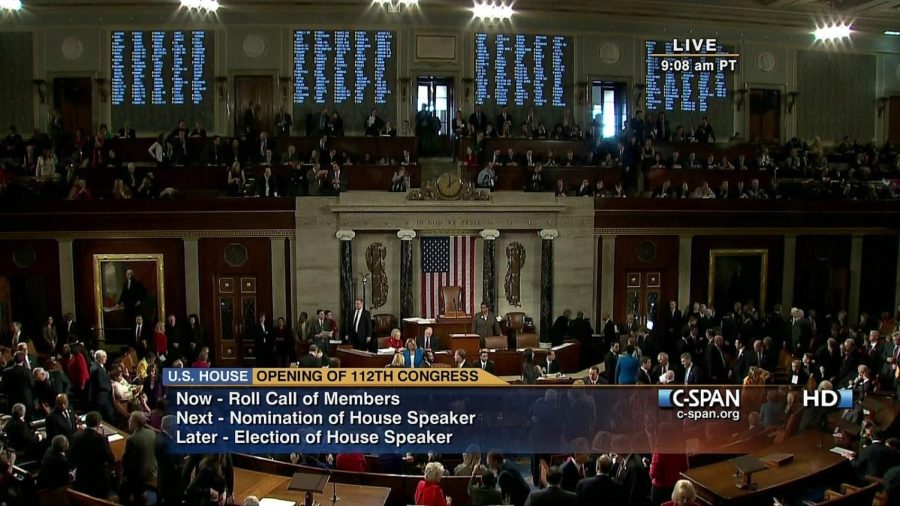Extreme partisanship hurts America
Extreme partisanship has become overwhelmingly prominent in all aspects of government in recent years. This development poses a threat to the U.S government.
November 8, 2022
Over the past two years, the divide between the Democratic and Republican parties has been rapidly increasing. Extreme partisanship, like we are seeing today, silences voices and can cause important problems to be overlooked.
In President George Washington’s farewell speech in 1796, he warned that political factions were a danger to the country and could obstruct laws. Although one of America’s founding fathers warned against it, the country has not heeded his advice and has instead thrown itself headfirst into the two-party system.
The two-party system, along with the growing split between the parties, silences alternative voices. As the Democratic and Republican parties get stronger, smaller parties, such as the Libertarian and the Green parties, lose strength, making their voices unheard. Different voting techniques, such as ranked-choice voting, could help with this problem. Voters rank their candidacy choices in order of preference, which allows for more representative elections.
YouGov, a global public opinion and data company, reports that 66% of Americans believe the country is more politically divided since the beginning of 2021, which was defined by the Capitol riots. More than half of Americans believe that the U.S. is more politically divided than ever.
Opposing sides continue to attack everything their opponent does, including matters that have nothing to do with politics. During the 2020 vice presidential debate, a fly landed on former Republican Vice President Mike Pence’s head, causing Democrats to poke fun at the incident. Last summer, President Joe Biden fell off his bike in Delaware, causing Republicans to imitate and mock the situation. Instead of working together on bipartisan policies, the two parties choose to degrade each other.
The phrase “negative partisanship” has been coined by researchers at Emory University. The term refers to the tendency of voters to support their party out of sheer hatred toward the opposing party, rather than supporting their party because they agree with the viewpoints. Negative partisanship has become a prominent feature of elections and continues to harm the U.S.
The effects of extreme partisanship are also physically dangerous. The COVID-19 pandemic has caused over a million deaths in the U.S. These tragic casualties could have been avoided with rapid bipartisan agreement and plans to handle the situation.
Some members of the government have spoken out about this. Former Defense Secretary Mark Esper believes that “the greatest threat facing our country today is here at home. It’s extreme partisanship from both sides of the aisle that is hurting our political discourse, the social fabric of our country, and our democracy.” More members need to have this point of view.
Now, it’s more like the two sides are consistently trying to beat each other, instead of working towards a better America together. The only way to fix this is for both parties to recognize the divide and work together to find a middle ground on problems facing the U.S.







